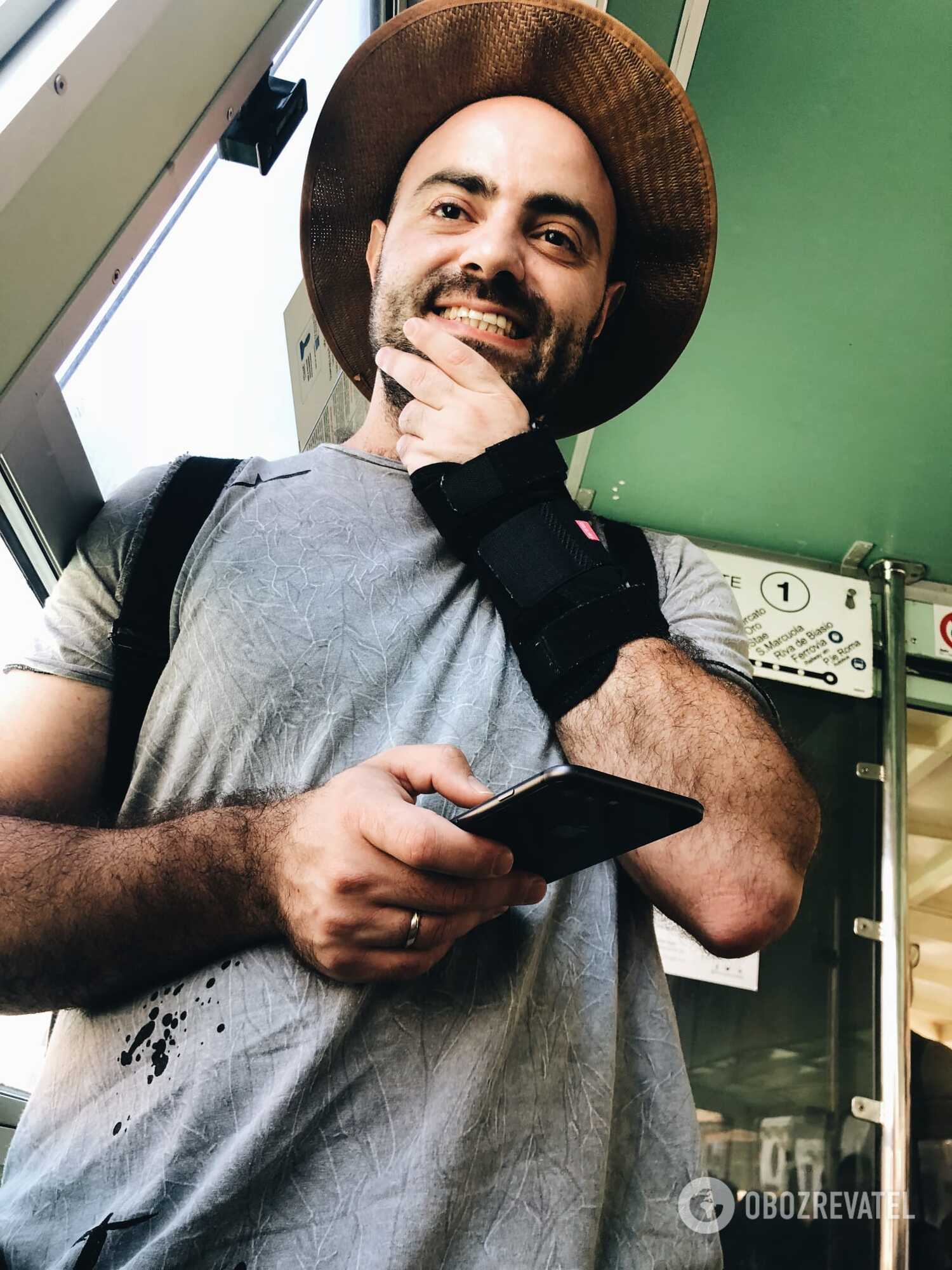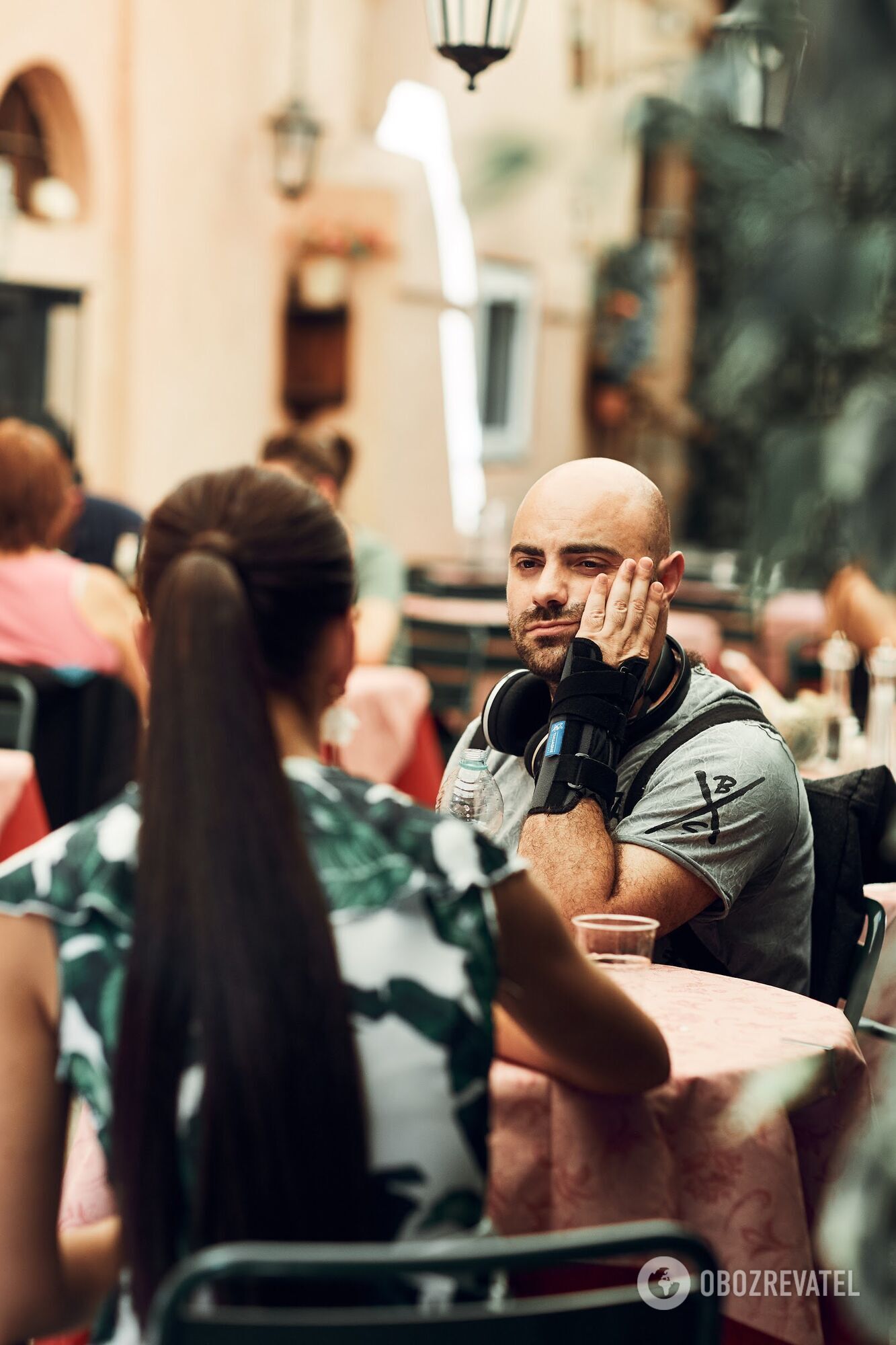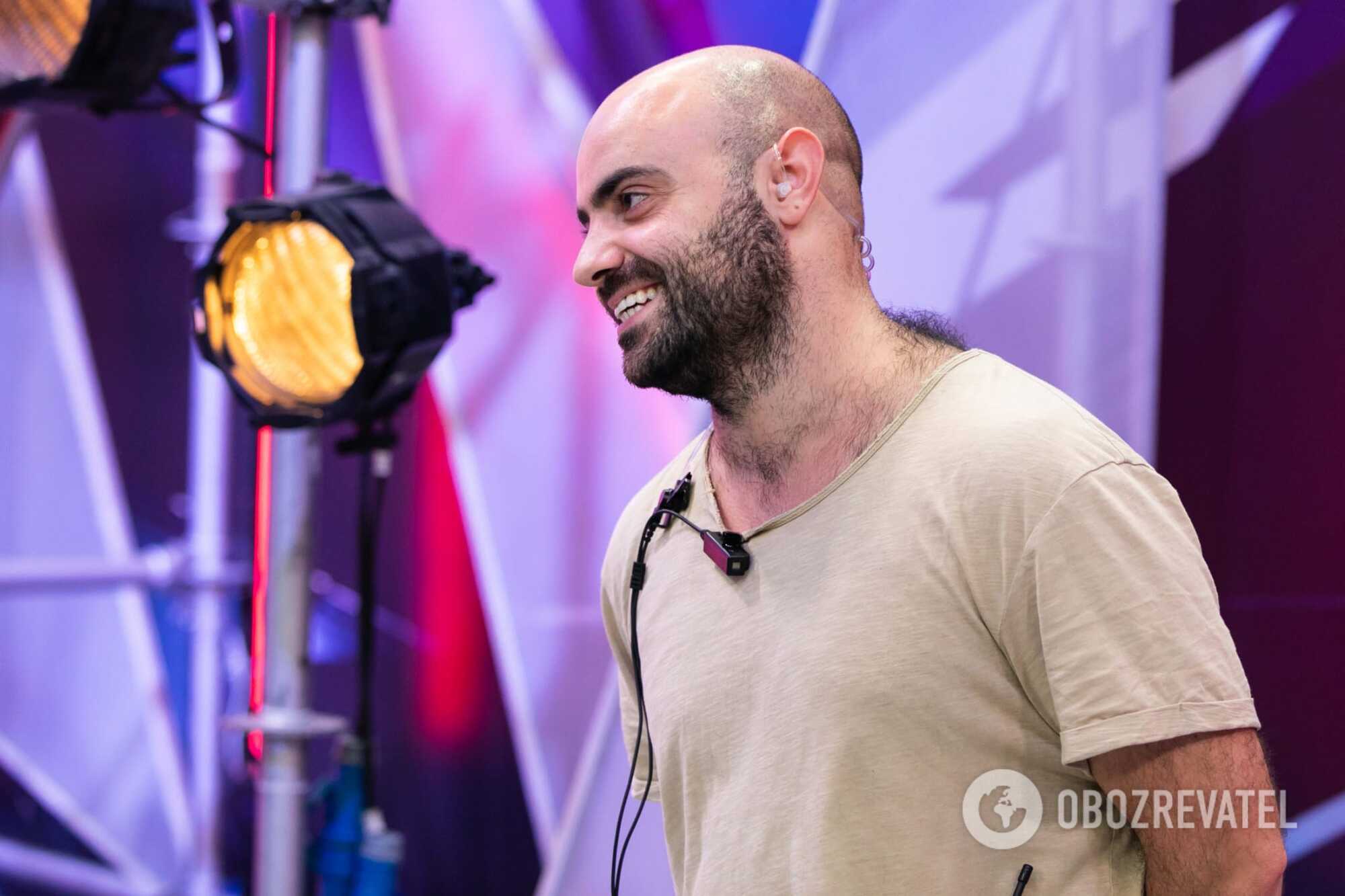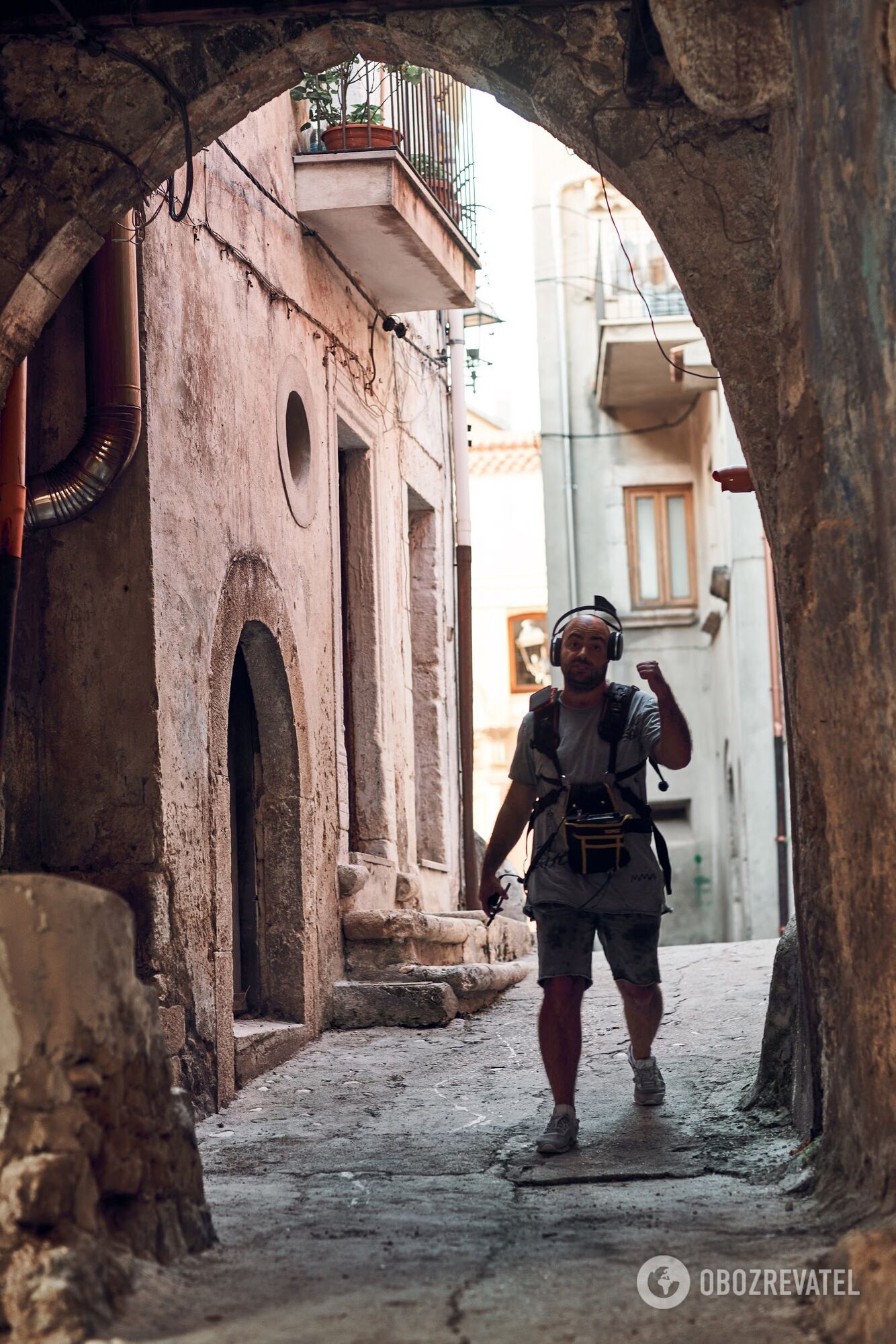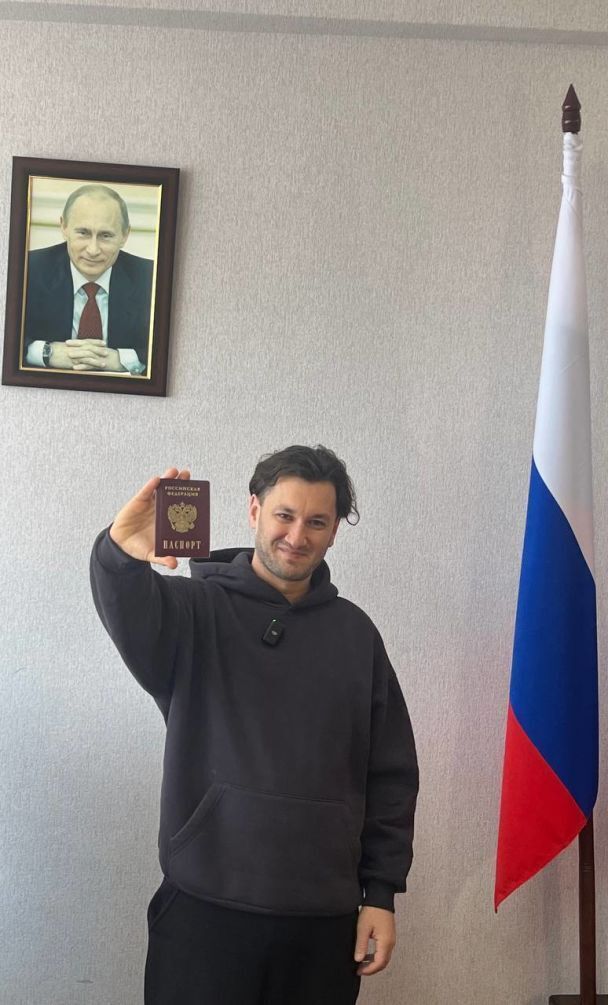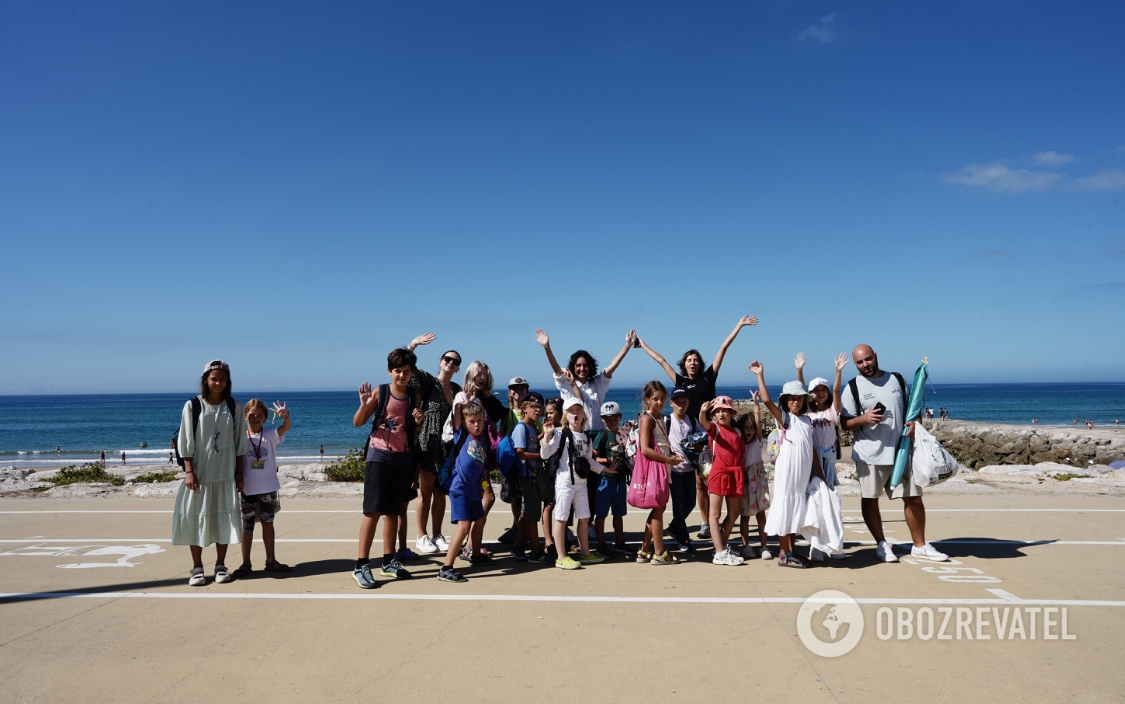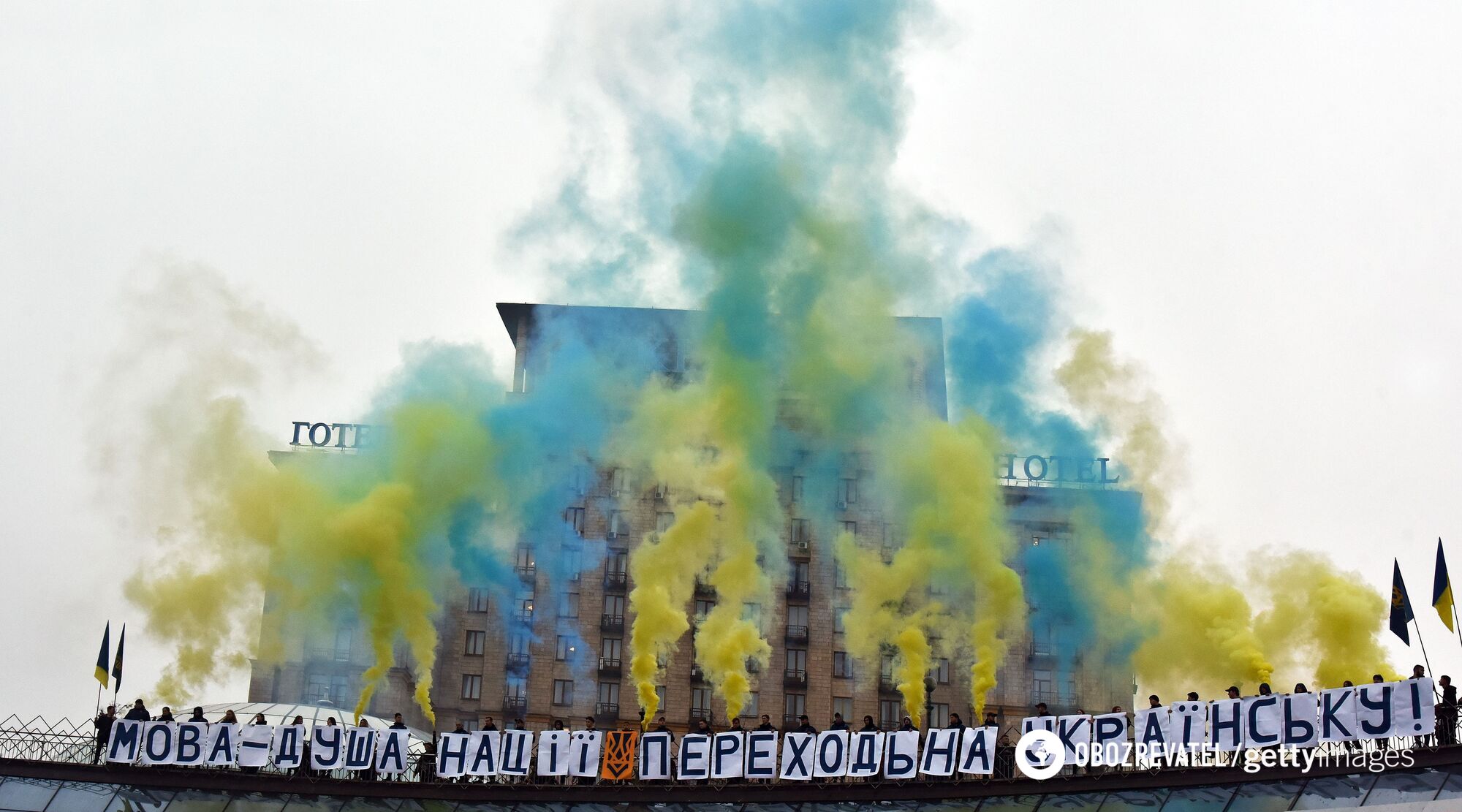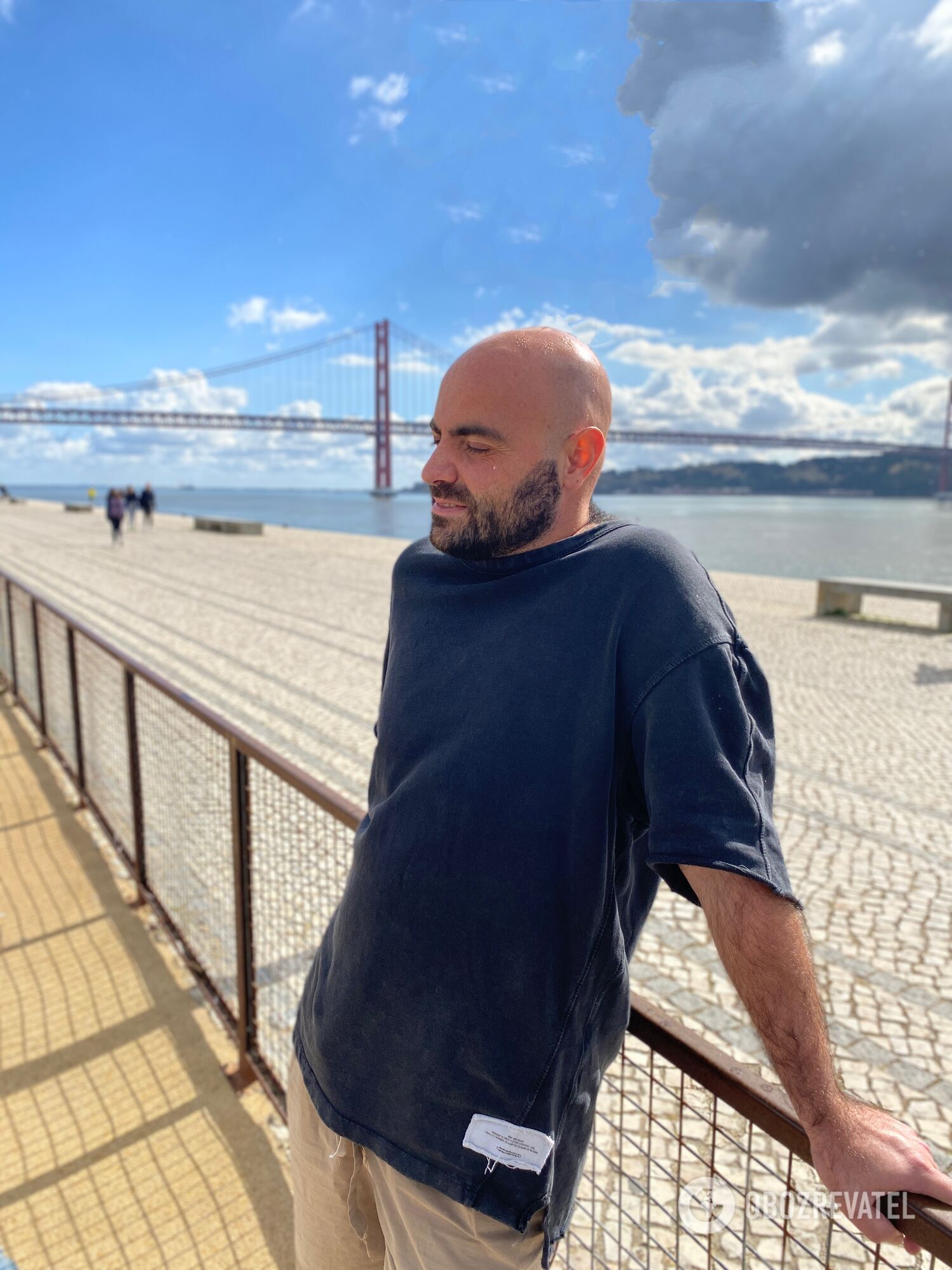Entertainment
"I consider myself a Ukrainian". Comedy Club producer about the traitor Bardash, his dismissal from TNT because of the war, and how he became a "dad" to children from Ukraine in Portugal
Armen Ohanyan, a former creative producer and scriptwriter of the cult Ukrainian and Russian projects Star Factory, Comedy Battle, The Bachelor, Marry Buzova, and Dancing, was fired from TNT for "political and radical statements" about Russia's full-scale invasion of Ukraine. For supporting Ukraine, his colleagues were banned from communicating with him.
After leaving Russia with his family, Armen chose Portugal as his new home, where he helped temporarily displaced children adapt to new realities. In his first Ukrainian-language interview exclusively for OBOZ.UA, Armen talks about his decision to never return to Russia, why he identifies himself as a Ukrainian despite his Armenian heritage, and his participation in the new Ukrainian projects Let's Talk at Home and The Heap of Legs.
– You have an interesting life path: you were born in Kramatorsk, studied in Kharkiv, then moved to Moscow, where you built a successful career as a television producer, and after Russia's full-scale invasion of Ukraine, you ended up in Lisbon...
– Actually, my story is even more interesting. I was born in Baku, the capital of Azerbaijan, and because of the Armenian pogroms in late 1988, my family was forced to move to Ukraine, to Kramatorsk.
– So you actually became refugees? According to your family's memories, how were you received in Ukraine?
– Yes, it was my first refugee. First we flew to Donetsk, and then we moved to our relatives in Kramatorsk. Yes, I remember that there was some kind of attitude towards children as a curiosity, but not for long. At some point there were a lot of us (Armenians). I also cannot say that there were any conflicts at the household level.
– After graduating from the Kharkiv Aviation Institute, you didn't work in your specialty, but moved to Moscow?
– It was a consequence of my desire to get out of Kramatorsk. I know people who adore this city, especially now. But when I lived there, it was always not enough for me, and I wanted to move somewhere where I would feel differently than in a small industrial town.
I was always looking for myself in creativity, and the most accessible of all was KVN, in which I participated. It was thanks to the Kharkiv Aviation Institute (Kharkiv Aviation Institute) team "People in White" that I learned that there was such a university. There was also a mathematical lyceum in Kramatorsk from this institute. And to make you understand, I was still smart. I had only a single nine (according to the twelve-point system) in Russian, and I got twelve in all other school subjects.
That's how I got into KhAI on a budget. But already in my third year I decided that it was not my thing at all. After all, it is unlikely that a creative person will make a good engineer. But I still graduated from the institute. At the end of his studies, he worked on the live broadcasts of the morning show "Seventh Studio" in Kharkiv. Later, thanks to his KVN contacts, he started working as a scriptwriter for various projects in Kyiv. Television in Ukraine has always been very powerful. Ukraine was the first country in the entire post-Soviet space to buy international formats.
I remember collaborating with the Poles on TV Superstar, followed by Star Factory and People's Star. In 2011, I was invited as a specialist to help make Comedy Battle in Russia. Russians didn't know how to make shows and needed specialists. I never wanted to move to Moscow. But I wasn't planning to move to Kyiv either. To this day, Kharkiv remains the most comfortable place for me to live.
– Tell us about your time in Russia.
– I can divide this period into three stages. Until 2014, before Russia annexed Crimea, I had many friends there, I was invited to be a godfather several times. I was successful in terms of production. At that time, I met a girl who later became my wife.
But in March 2014, when everything happened, the first separation from my friends, most of whom came from the KVN in Moscow, also happened. They didn't understand what was happening, no matter how hard I tried to explain it to them. Perhaps because I have always had a developed critical mind.
And in addition, my parents were sitting in the basement under the bombs in Kramatorsk, which is located very close to Sloviansk, where it all started, where all these Hirkins and all that scum were sitting. But my friends had relatives in the occupied territories of Donetsk and Luhansk oblasts, and, frankly, even my classmates fought for the DPR and LPR. They all really believed that Russia would come and everything would be great! Propaganda has always worked well in Russia. Now people are more aware that it's a horror, but back then, few people understood what was happening.
I also remember the year 2014 because I brought my girlfriend to meet my parents for the first time during the Christmas holidays. I remember drinking coffee in the center of Donetsk in a Ukrainian-language cafe, planning a wedding that, unfortunately, took place only on the technical side (signing the marriage license at the registry office) because we decided that we could not afford it in such circumstances.
In 2022, when Russia's full-scale invasion of Ukraine took place, I had virtually no support from anyone, and the final breakup took place. Now I keep in touch with only three of my friends who have also left Russia. And, unfortunately, my brother, who left for St. Petersburg even before me, and my parents, whom I took away from the shelling back in 2015, continue to live there. Where could I take them at that time? Where I lived, in Moscow. That was the situation at the time. When I wanted to take them back again after the full-scale invasion, they refused, saying that they did not want a third refugee in their lives. We did not communicate for some time. I could not accept this because I was counting on their support.
– Did you get fired for your "radical political statements" from the point of view of the Russian TV channel TNT?
– Coincidentally, before the launch of the ninth season of The Bachelor, I received a lot of media attention, and I tried to do something, seeing the tension rising. So I posted a lot of stories on Instagram. A few days before the full-scale invasion, my family and I were in another country. We had return tickets to Moscow for February 24.
When the invasion happened, I told my wife that we were not going back. She supported me. My wife loves Ukraine very much. And even when we lived in Moscow, she dreamed of living in Kyiv. It was she who introduced me to perepichka, she told me: "Are you a Ukrainian and don't know what perepichka is?"(smiles) Then TNT fired me, and I started posting even more and giving out some information to the channel, for which TNT banned all my colleagues from communicating with me.
– Why did you make this decision?
– It seems to me that this is a completely adequate decision against the background of what was happening. My goddaughter and her parents were in the basement in Kharkiv, writing to me about the horror that was happening there, and another family, where I am also the godfather, near Kyiv, the same thing. There could be no denial in my mind. A real war had begun. I realized that it would never be like before.
– Of all the available countries, why did you choose Portugal?
– We had been to Portugal even earlier. I can't say that before the war we had any thoughts of moving here permanently. But back in 2021, when talk of a possible full-scale invasion began, my friends and I were thinking about options for leaving Russia in case of this. When it all happened, we found out that Portugal is one of the few countries in Europe that allows entry for Ukrainians and their family members, regardless of their citizenship (my wife and daughter are Russian citizens), and even if they do not have a European visa, to receive temporary protection. That's how we ended up in Lisbon.
– Were you familiar with the Ukrainian producer Yurii Bardash, who recently flaunted his Russian passport against the backdrop of Putin's portrait? If so, how can you comment on his action?
– I met him once at a meeting. What can I say about this? It is a short-sighted choice to join a terrorist country at a time when so many crimes have already been proven.
– How does Lisbon seem to you after eleven years of living in Moscow?
– I adore Lisbon. I never liked Moscow. There is an emotional part about it, and there is an obvious part. Moscow is a very comfortable city to live in. Everything is done in such a way that you can get anything you want around the clock. Moscow is a showcase to show how great everything is in Russia . Just like in Stalin's time, a lot of foreign delegations came to Moscow, and everyone was surprised at what an incredible Soviet city it was. And now it's the same, only under a new totalitarian regime.
– In Lisbon, did you completely change your line of work?
– When we first moved to Lisbon, we were very stressed by everything that was happening in Ukraine. The atrocities of the Russians had already been made public by then. Therefore, I was not able to translate my stress into creativity at that time. And while many Ukrainians had, have, and hopefully will have the opportunity to return to their homes, I don't. My home, or what I associated with it, I will not return there. It was my internal problem. Now it [home] is here, in Lisbon. And I had to think about what to do next.
My biggest problem is laziness in learning a new language, and my work directly depends on knowing it. That is, in order to work in my specialty, so to speak, I need to know Portuguese at the highest level to convey meanings and make edits. So when I saw an announcement that a Ukrainian camp for temporarily displaced school-age children needed a person who could organize recreation and spend time with them in an interesting way, I immediately responded.
I explored Lisbon with these children, organized fairs where children could earn money, we went to the ocean. And this camp took me out of stress. If we take it from the psychological side, I was a substitute father for many children. Later, the mothers of these children told me that their children had never had such a summer. And I believe it's true because I never had a summer like that either. And thanks to this work, I made my first acquaintances and connections. For example, I was offered to host a rather powerful forum for Ukrainians. I can tell you that there is a very creative community here.
– In one of your Instagram posts, you wrote that "language is one of the main criteria of self-identification". When did you switch to Ukrainian and do you speak it with your daughter?
– Yes, I believe that language is one of the most important criteria for self-identification. And I now identify myself as a Ukrainian, precisely because of my language. For example, I have almost no Armenian identification, because I don't know the language, my parents didn't teach me, and they are native speakers, but they didn't practice it, so to speak. And because of this, I cannot identify myself as an Armenian. It's not that I'm fencing myself off, but I'm a Ukrainian, and it seems to me that it's probably because of the language. When I used to come to Ukraine, I always tried to speak Ukrainian whenever we had a dialog.
As for my daughter, I can't say that we speak Ukrainian, but I read to her in this language. I also organize camps for Ukrainian speakers only. And when she goes there, I make no exceptions. There she listens to me in Ukrainian. She understands everything.
– From your Instagram, it is impossible not to notice that you are a great father and that children are very interested in you. How did you discover this ability to be able to get along with children?
– To like a child, you have to be a child. And to work with them, you also need to be a child to some extent (smiles ). Children are your instant cashback of emotions. Besides, I have a lot of experience as a screenwriter. I used to be a leader in a children's camp before the annexation of Crimea, and I talk a lot (smiles).
– Are you currently working as a scriptwriter on the projects Let's Talk at Home and The Leg Dump?
– Yes, my friend Nataliia Haripova was the producer of the project "A Quiet Evening with Olena Kravets," and she invited me to work as a scriptwriter. If the media hadn't crucified this project, in my opinion, it would have fulfilled its mission, and a lot of patriotic people worked on it, who would not have taken away anything unnecessary. So, it was on this project that I met Olena Kravets. Later, the idea for the Vdoma Pokhrana podcast came up, and I offered to help.
As for the "Leg Dump" project, which involves Ukrainian military man and aspiring writer Oleksandr Budko (better known as "Flower of the Field"), who lost his limbs in the war, it is a test of inclusivity in the regions of Ukraine. That is, Sashko travels with showbiz stars to different cities, they sit in a wheelchair and check whether everything is accessible and barrier-free.
The most important thing in this project is to popularize and make sure that the authorities and business representatives pay attention to the fact that the space is inclusive for people with disabilities and for mothers with baby strollers. This is a social, motivational, and, thanks to Oleksandr, ironic project. Through his humor and sarcasm, he does not expose something bad, but rather makes the viewer realize how bad it is, how much has not been done or not done at all
– After the war is over, do you plan to continue living in Portugal or would you like to return to Ukraine?
– This is a difficult question, given that my family are citizens of the Russian Federation... Besides, I really enjoyed living in Lisbon! As I said before, I met a lot of representatives of the creative community who are opening various establishments, and I enjoy communicating with them. My dream is to open a Ukrainian-language stand-up club to provide performance opportunities and an open mic for Ukrainians who have chosen to stay. I want these people to keep in touch with the Ukrainian information space and culture.







